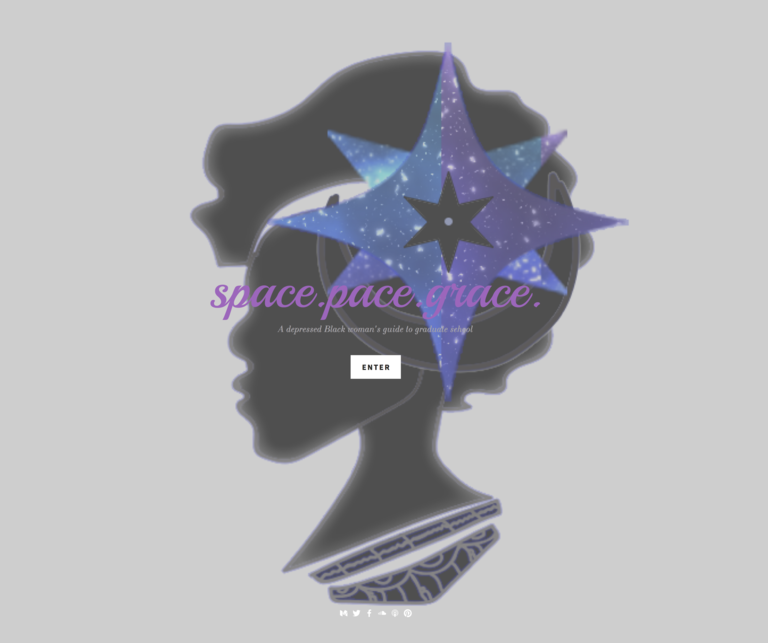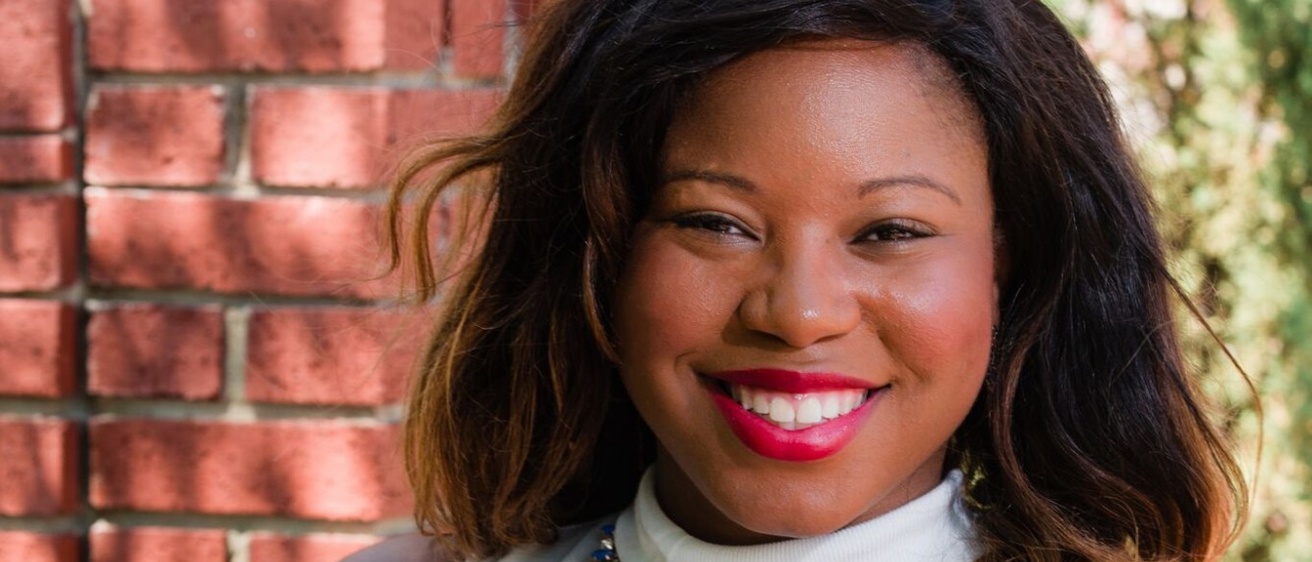Imagine discovering halfway through your master’s degree that you read at a fourth-grade level.
That’s exactly what happened to Joy Melody Woods during her first year in the College of Public Health’s MPH Program. After mentioning to her supervisor that she was having difficulties in some of her classes and struggling to focus on the assigned readings, her supervisor suggested that she be tested for attention deficit disorder. When Woods tested negative for ADD, a neuropsychologist recommended learning disability testing. “It was seven hours long,” Woods recalls. “I cried through some of it.”
The results were devastating yet illuminating: she had three different learning disabilities—a nonverbal learning disability, a reading disability, and a visual processing disorder. “It explained a lot,” Woods says, recalling her lifelong struggle to keep up with reading assignments, her trouble with math, and her poor grades. The results also led her to realize that the MPH program was not the best fit for her, and she promptly transferred to the College of Education’s Schools, Culture, and Society MA program.
Diagnosis in hand, she was able to secure several accommodations from UI Student Disability Services that helped her with her coursework—but still she felt isolated, without a safe space to discuss what she was going through. “I felt like I didn’t have space on campus or in my family,” she remembers, noting that learning disabilities are often viewed as a weakness in the Black community, and that Black women especially are taught to be strong and not show weakness.
So she turned to blogging.
“People who are marginalized make their own space,” she says. “That’s what I did.”

On her blog, Without a Space: A Depressed Black Woman’s Guide to Graduate School, she writes about topics as weighty as depression and suicide in the Black family, racism she’s experienced in Iowa, imposter syndrome, and how to make rent as an unfunded grad student. “I talk about everything,” she says. “It’s the unfiltered truth, but I try to keep it relatively light.”
Shared space
Her aim with the blog is twofold: to work through her own thoughts and feelings via writing and to provide resources to other students of color with learning disabilities, including an online space for discussion about mental health.
“People give up because they don’t know other people struggle to get where they are,” she says. “If someone doesn’t know where you misstepped and they fall, they’ll think there’s something wrong with them. So on my blog I say, ‘Hey, I failed a test today. It’s OK to not be OK!’”
Readers frequently ask her questions via the blog or Twitter, many wanting to know if mental health counseling is scary, how to find a psychologist, and where to go for learning disability testing. Woods tries to respond to every comment to make sure her readers feel heard and encourage conversation.
What do you need?
Woods’ passion for creating conversations between the academy and the community—specifically around mental health issues—led her to participate in the 2017 Obermann Graduate Institute on Engagement and the Academy, where she says she learned the importance of “reigning in the impulse to tell a community what it needs. Ask your community what they need instead of thinking you’re some guru.” She makes a point of asking her readers what topics they’d like her to address.
It’s working. In May 2018, she had 2,100 unique views of her blog—the same number of views she received during the whole of 2017.
She’s now inviting guest contributors to submit blog posts, recognizing that “there are other vantage points, other struggles.” So far, guests have written about their experiences being depressed and queer, reckoning with a bipolar diagnosis, and coming to terms with childhood trauma while in grad school. (For more, check out the Shared Space section of her blog.)
Woods also hosts a companion podcast, Morning Joy, where she discusses education, mental health, and music with friends, academics, and other public figures. One notable episode is “HERstory” (March 2018), in which she interviews UI Vice President for Student Life Dr. Melissa Shivers.
Woods finds the podcast a way to reach audio learners, as well as anyone desiring a more spontaneous, less structured conversation. Plus, she says, “I think you catch people’s personalities more in audio, which can be fun.”
Moving forward
Woods is glad her blog and podcast are resonating with people, though she admits it’s a lot of work—writing, thinking, scheduling, interviewing, and marketing, not to mention the emotional labor involved. “Talking about some of this stuff is hard,” she says, noting that some of her family members are uneasy about her discussing (what they see as) private matters on a public blog.
Her goals for the coming year are to become more consistent about writing posts and releasing podcast episodes and to attract more blog contributors and readers. To that end, she’s rebranding her blog, designing a new logo, and adding merchandise, including a second digital workbook to accompany her first, which she created to help people articulate and follow through on their goals. “My dream, of course, is to make BLAVITY’s and Huffington Post’s list of must-read blogs,” she says.
Woods has also begun writing for trynagrad.com, a blog by graduate student Bennie Niles from Northwestern University dedicated to supporting Black students on their journeys to and through grad school.
After earning her MA in Spring 2019, she plans to apply to PhD programs in health communication and someday work with athletic teams to break the stigma of mental health in the Black community. As she writes in a post from May 2018 titled “Setting the Bones”: I am here to remind you that Black mental health matters! I am here to remind you that it is okay not to be whole—that doesn't mean you're broken.
If you are interested in being part of the next Obermann Graduate Institute on Engagement and the Academy, which meets every January, please see the application page. Applications for the 2019 Graduate Institute are due October 9, 2018.
